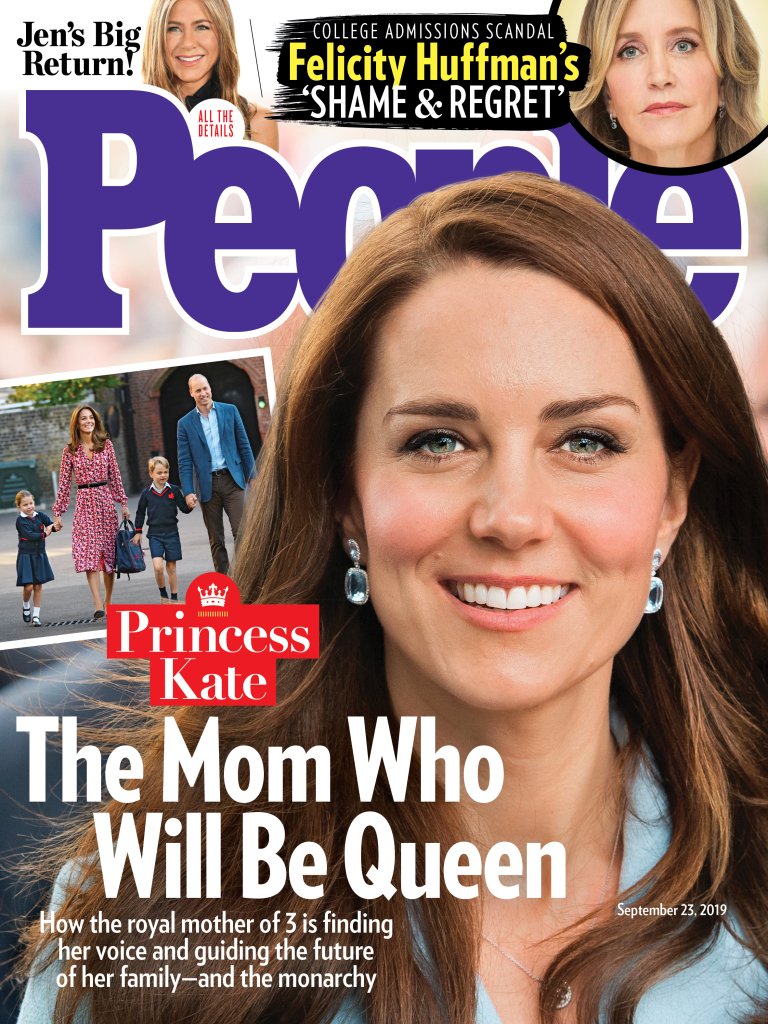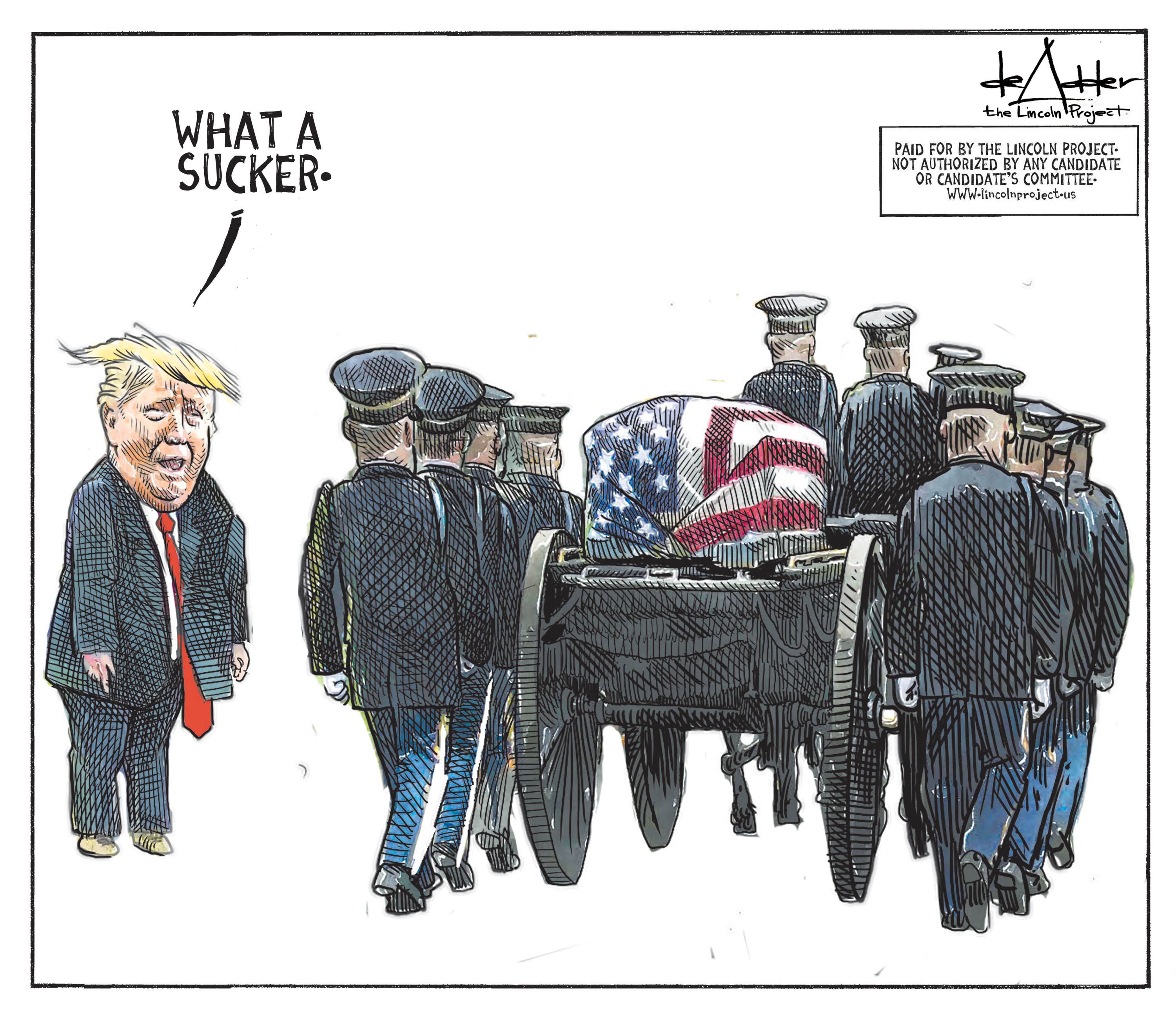"If one more Republican grandee or neoconservative bigwig endorses Obama, his campaign will collapse under the weight of counterintuitive adoration."
I've thought of that comment many times in the last few weeks as several groups of Republicans, and some now-former Republicans, have joined together to defeat Donald Trump. There are groups:
The Lincoln Project
Republican Voters Against Trump
43 Alumni For Biden (These are people who worked for President George W. Bush)
Republicans and Independents for Biden
... and there are individual Republicans, including John Kasich, Carly Fiorina and yes, Colin Powell, who have also endorsed Biden. Yesterday former Pennsyvania governor and Secretary of Homeland Security Tom Ridge endorsed Biden, and this morning it's been announced that John McCain's widow Cindy has joined Biden's transition team.
Will any of this have an impact on the election? Political scientist Jonathan Bernstein says it can:
Former Michigan Governor Rick Snyder endorsed Joe Biden late last week, part of a somewhat impressive group of Republican supporters that the former vice president’s campaign has rolled out recently. The obvious question: Does it matter?
We should expect minimal direct effects. Even in Michigan, there are very few voters who will hear from Snyder and switch from President Donald Trump to Biden. And Snyder is Biden’s biggest catch so far; many of his other Republicans supporters either have been out of office for a long time or were moderates to begin with and no longer really fit in the party. For example, Bill Weld was governor of Massachusetts in the 1990s; former New Jersey Governor Christine Todd Whitman has been out of office for nearly 20 years. It’s unlikely that many undecided voters even know who they are, let alone care about their voting advice. Former Secretary of State Colin Powell is better known — but it’s been a while since he supported a Republican for president.
And if those politicians are unlikely to directly bring many votes with them, it’s even less likely that any undecided voters care what former staffers for John McCain and Mitt Romney think.
There’s more to elections, however, than direct effects.
At the most basic level, these endorsements are newsworthy — which just means that cross-party endorsements are unusual enough to be worth reporting (note that the Republican convention featured one Democratic state legislator who supports Trump, which got some coverage as well). The more defections, the more stories. And each of them is a good-news-for-Biden story that crowds out, in part, whatever it is that the Trump campaign wants reported. Voters may not care about what some obscure politician thinks, but if they see a steady stream of stories that are positive for Biden and negative for Trump, that may have some influence on them.
There’s also a more indirect effect. Voters don’t pay much attention to endorsements, but political actors — including the media — certainly do. The more (and the more weighty) cross-party endorsements that a candidate There’s also a more indirect effect. Voters don’t pay much attention to endorsements, but political actors — including the media — certainly do. The more (and the more weighty) cross-party endorsements that a candidate receives, the better his or her claim to the mainstream; the more defections a candidate suffers, the more likely that the media will treat her as out of the mainstream or unusually troubled. That’s especially true for a sitting president, who shouldn’t have much difficulty keeping the party on board. Of course, endorsements aren’t the only evidence that can change how a candidate is treated; policy positions matter too, as do actions and words. But endorsements have the advantage of being relatively objective, and the neutral media tends to like objective facts that they can lean on when they want to say things that they think are true — that a Barry Goldwater or a George McGovern is ideologically extreme, or that a Jimmy Carter or a Donald Trump isn’t up to the job. (Note that these are examples of what reporters believed, not what was necessarily true.)
The mistake some make is to expect all or nothing, when all of this operates at the margins. After all, more than 80% of voters are going to be loyal to their party almost no matter what. Yes, turnout may complicate this picture a bit, but even then most people are either habitual voters or habitual nonvoters. And most swing voters — either the kind who might support either candidate or the kind who will vote for one party or stay home — don’t pay much attention to politics anyway. Still, they do tune in a bit when an election is near, and they may well be influenced by the information environment, which in turn is influenced to some extent by things such as cross-party endorsements.
And by the way: That’s how most news stories affect elections. The idea that a significant number of voters would desert their party’s presidential nominee based on any single news story is just not how things work. But that doesn’t mean something such as the Atlantic’s recent story about Trump’s lack of respect for military service (and follow-ups verifying and sometimes expanding on the key details) is irrelevant. Instead, it means that there’s a lot of negative Trump news out there at the moment, and it helps shape how the president will be portrayed going forward. For those voters who may be cross-pressured or just haven't given any of it much thought, such coverage tends to push them toward some candidates and against others.
Which is, to tell the truth, a pretty healthy process when done correctly. (This is the column in its entirety. Note that it was posted on September 8, before Ruth Bader Ginsburg died, opening up a Supreme Court seat, and before the new New York Times bombshell story about Donald's taxes.)
Former Michigan Governor Rick Snyder endorsed Joe Biden late last week, part of a somewhat impressive group of Republican supporters that the former vice president’s campaign has rolled out recently. The obvious question: Does it matter?
We should expect minimal direct effects. Even in Michigan, there are very few voters who will hear from Snyder and switch from President Donald Trump to Biden. And Snyder is Biden’s biggest catch so far; many of his other Republicans supporters either have been out of office for a long time or were moderates to begin with and no longer really fit in the party. For example, Bill Weld was governor of Massachusetts in the 1990s; former New Jersey Governor Christine Todd Whitman has been out of office for nearly 20 years. It’s unlikely that many undecided voters even know who they are, let alone care about their voting advice. Former Secretary of State Colin Powell is better known — but it’s been a while since he supported a Republican for president.
And if those politicians are unlikely to directly bring many votes with them, it’s even less likely that any undecided voters care what former staffers for John McCain and Mitt Romney think.
There’s more to elections, however, than direct effects.
At the most basic level, these endorsements are newsworthy — which just means that cross-party endorsements are unusual enough to be worth reporting (note that the Republican convention featured one Democratic state legislator who supports Trump, which got some coverage as well). The more defections, the more stories. And each of them is a good-news-for-Biden story that crowds out, in part, whatever it is that the Trump campaign wants reported. Voters may not care about what some obscure politician thinks, but if they see a steady stream of stories that are positive for Biden and negative for Trump, that may have some influence on them.
There’s also a more indirect effect. Voters don’t pay much attention to endorsements, but political actors — including the media — certainly do. The more (and the more weighty) cross-party endorsements that a candidate There’s also a more indirect effect. Voters don’t pay much attention to endorsements, but political actors — including the media — certainly do. The more (and the more weighty) cross-party endorsements that a candidate receives, the better his or her claim to the mainstream; the more defections a candidate suffers, the more likely that the media will treat her as out of the mainstream or unusually troubled. That’s especially true for a sitting president, who shouldn’t have much difficulty keeping the party on board. Of course, endorsements aren’t the only evidence that can change how a candidate is treated; policy positions matter too, as do actions and words. But endorsements have the advantage of being relatively objective, and the neutral media tends to like objective facts that they can lean on when they want to say things that they think are true — that a Barry Goldwater or a George McGovern is ideologically extreme, or that a Jimmy Carter or a Donald Trump isn’t up to the job. (Note that these are examples of what reporters believed, not what was necessarily true.)
The mistake some make is to expect all or nothing, when all of this operates at the margins. After all, more than 80% of voters are going to be loyal to their party almost no matter what. Yes, turnout may complicate this picture a bit, but even then most people are either habitual voters or habitual nonvoters. And most swing voters — either the kind who might support either candidate or the kind who will vote for one party or stay home — don’t pay much attention to politics anyway. Still, they do tune in a bit when an election is near, and they may well be influenced by the information environment, which in turn is influenced to some extent by things such as cross-party endorsements.
And by the way: That’s how most news stories affect elections. The idea that a significant number of voters would desert their party’s presidential nominee based on any single news story is just not how things work. But that doesn’t mean something such as the Atlantic’s recent story about Trump’s lack of respect for military service (and follow-ups verifying and sometimes expanding on the key details) is irrelevant. Instead, it means that there’s a lot of negative Trump news out there at the moment, and it helps shape how the president will be portrayed going forward. For those voters who may be cross-pressured or just haven't given any of it much thought, such coverage tends to push them toward some candidates and against others.
Which is, to tell the truth, a pretty healthy process when done correctly. (This is the column in its entirety. Note that it was posted on September 8, before Ruth Bader Ginsburg died, opening up a Supreme Court seat, and before the new New York Times bombshell story about Donald's taxes.)




